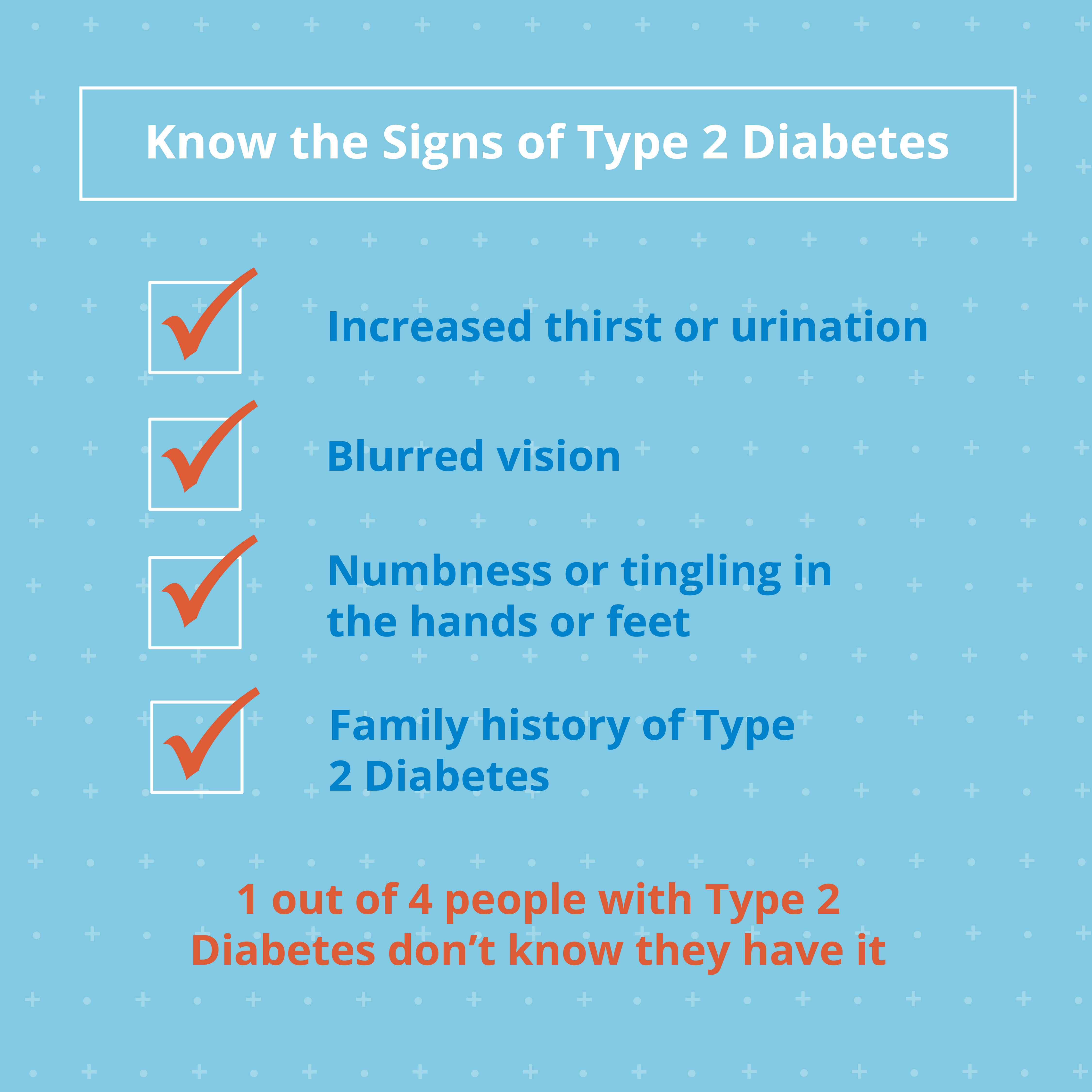Sports medicine and rehabilitation help athletes prepare for the spring season by improving...
Read More
Type 2 diabetes is a chronic condition that affects the way your body handles glucose (sugar) in your blood. Your body uses a hormone called insulin produced by the pancreas to turn glucose into an energy source to help your cells and organs do their jobs. With type 2 diabetes, the body either resists the effects of insulin or doesn’t produce enough of it to meet your body’s demands.

Symptoms of diabetes include increased thirst or urination, increased hunger, fatigue, blurred vision, numbness of tingling in the hands or feet, headaches, sores that do not heal and unexplained weight loss. These symptoms tend to develop slowly over the course of several years, which is why many people aren’t even aware they have it until serious health complications occur. One out of every four people with type 2 diabetes don’t know they have it.
Weight:
Your cells become more resistant to insulin if you have more fatty tissue. Focusing on keeping your weight in a healthy range through exercise and a healthy diet is one of the best ways to prevent or slow the progression of type 2 diabetes. Choose low-fat and low-calorie foods and get plenty of fruits, vegetables and whole grains.
Fat distribution:
If you carry a lot of your weight in your abdomen as opposed to in your hips and thighs, you have a greater risk of type 2 diabetes.
Inactivity:
Getting daily exercise helps you control your weight and makes your cells more responsive to insulin. It’s never too late to get dedicated to a workout plan that works for your lifestyle. Fit in a minimum of 30 minutes of moderate physical activity each day.
Family history:
You are more at risk if your parents or siblings have type 2 diabetes. Do what you can by choosing healthy lifestyle habits to lower your chances.
Treatment plans for managing type 2 diabetes symptoms include healthy eating, regular exercise, medication or insulin therapy and blood sugar monitoring to make sure your blood sugar levels are where they need to be.

If you have type 2 diabetes risk factors, your doctor may want to screen for type 2 diabetes if you’re under the age of 45. The American Diabetes Association recommends routine screening every three years beginning at age 45, especially for those who are overweight. Schedule a screening with an Inspira primary care physician today.

Sports medicine and rehabilitation help athletes prepare for the spring season by improving...
Read More
Specialty doctors provide expert care for specific health concerns, ranging from ear, nose and...
Read More
Understanding the most common surgeries can help prepare patients for potential procedures. Knowing...
Read More
The material set forth in this site in no way seeks to diagnose or treat illness or to serve as a substitute for professional medical care. Please speak with your health care provider if you have a health concern or if you are considering adopting any exercise program or dietary guidelines. For permission to reprint any portion of this website or to be removed from a notification list, please contact us at (856) 537-6772